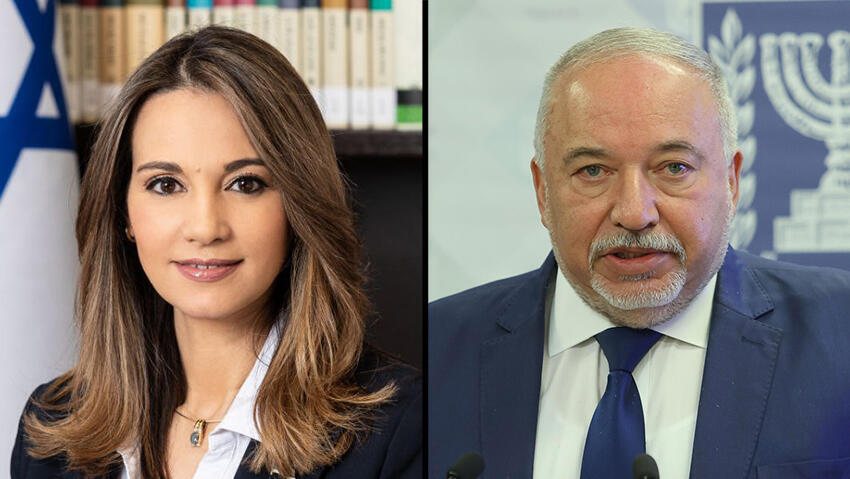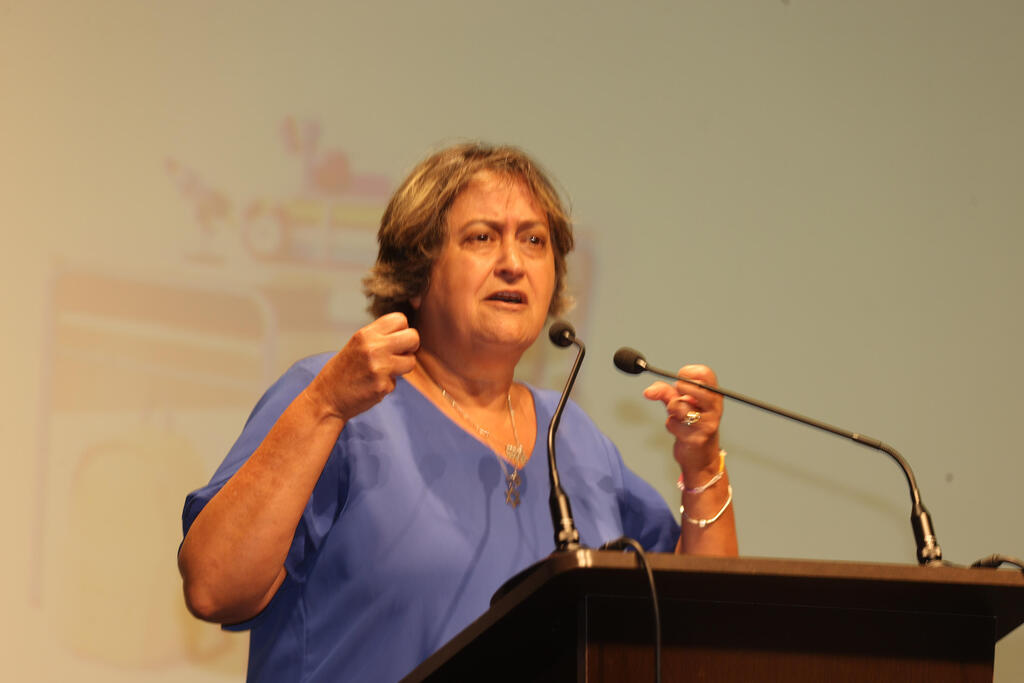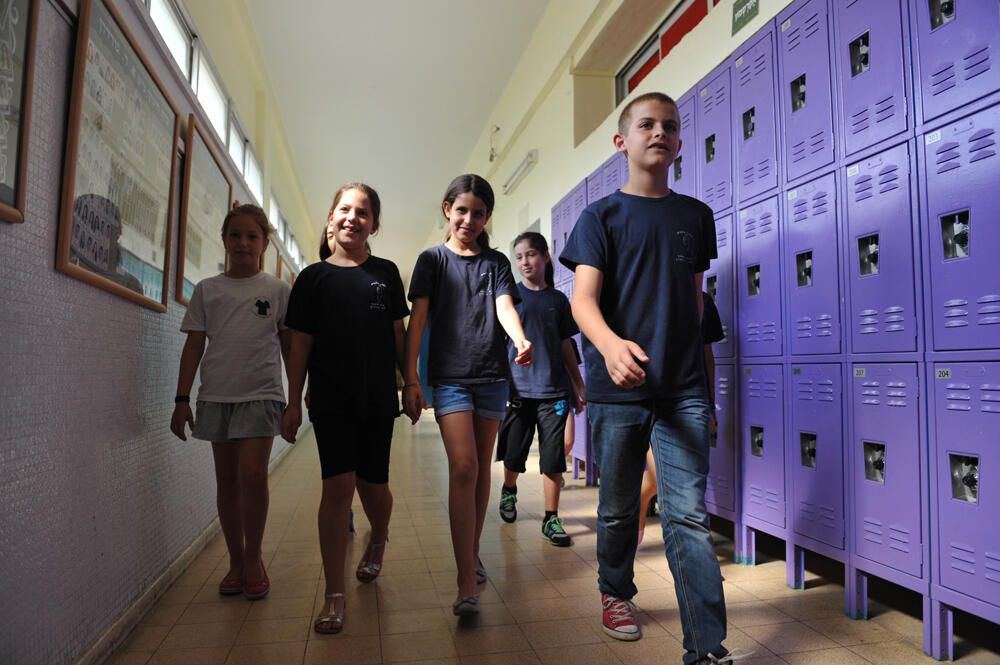Getting your Trinity Audio player ready...
If Israel’s Secondary School Teachers Association and the Finance Ministry do not come to a wage agreement by September 1, Israeli children will not return to class as scheduled, the union’s chairman Ran Erez announced on Wednesday.
“We are at the 90th [last] minute,” Erez said. “If we don’t reach an agreement in the coming days, the school year won’t start.”
4 View gallery


Israeli school children will miss the first day of school if the teachers unions and the Finance Ministry do not sign a wage agreement
(Photo: Meir Ohayon)
Erez joins Yaffa Ben David, the secretary general of the Israel Teachers Union, which represents educators for elementary and junior high schools, who has been threatening a nationwide strike if salary demands aren’t fully met.
Finance Minister Avigdor Liberman has offered significant raises for poorly paid junior teachers but much less for better compensated veteran teachers, all dependent on a restructuring of the education system which would provide increased pay for working longer hours.
Intensive negotiations have been ongoing for over a month.
“My son is in middle school. He’s looking forward to going back to school. I and other parents as well are waiting for the school year to start,” Arik Kaplan, chairman of the Jerusalem Parents Association, told The Media Line.
“After they spent so much time at home during COVID, the school year must start on time. People don’t realize how deep the emotional and psychological damage that COVID had on kids was, when they had to stay home. If they don’t start the school year on time, this damage will only grow bigger,” he said.
“Education is our society’s Iron Dome. It’s our future. The next prime minister, the next president, next chief of staff, next High Court judge, they are all in elementary school right now. If we care about what the State of Israel will look like in 30 or 40 years, we must guarantee these kids the best possible education, and the best teachers,” Kaplan said.
I and other parents as well are waiting for the school year to start
The teachers are far from satisfied with the government’s latest proposal.
“The Finance Ministry is looking at the short term. They say they want to encourage younger teachers with a higher salary, but a teacher doesn’t come to work for only three years,” said Theodor Ariel Amar, who teaches at the prestigious Hebrew University High School in Jerusalem.
Amar told The Media Line that the Finance Ministry’s proposal is not relevant.
“We want to look at our professional and financial future, too. And if in 10 years teachers will realize they’re in a dead-end job, they’ll leave the system.”
The unions are demanding increased salaries across the board, while the ministry’s proposal focuses on new educators and performance-based financial rewards.
In 2019, teachers’ salaries reached almost 10% of the state budget. The average monthly salary of a teacher in Israel is approximately $3,660, which is slightly higher than the average salary in the country. A new teacher earns about half of that: $1,600.
“The ministry is trying to put a Band-Aid on the urgent matters, but what the union is trying to explain is that this Band-Aid will end up doing more damage than helping. It’s sloppy management by the Ministry of Finance,” said Amar.
He is not optimistic regarding the chances of avoiding a strike.
“The only scenario I see where this dispute is resolved is if [Prime Minister Yair] Lapid gets involved and pressures both sides. Two months before elections, the last thing he needs is for the school year not to open on time,” Amar said.
Kaplan explained why he thinks a solution might be reached before the deadline.
“I was quite doubtful they’ll reach an agreement, but now that I see Lapid getting involved I think there might be a chance for it. Elections are coming and he can’t ignore it. The question now is how much both sides will agree to compromise,” he said.
4 View gallery


Education Minister Yifat Shasha-Biton and Finance Minister Avigdor Liberman
(Photo: GPO, Alex Kolomoisky)
Lapid on Sunday spoke about the negotiations with Liberman, Education Minister Yifat Shasha-Biton and union head Ben David. The prime minister tried to mediate between the parties, hoping to prevent a strike on September 1.
Parents also are pessimistic and are split on support of the teachers. After two years of coronavirus regulations during which students spent most of their time at home, there is little patience for talk of not opening the school year on time.
“We as parents support the union generally, but she [Ben David] must understand that she must compromise as well. The gaps, for the time being, seem significant,” said Kaplan.
“The parents are divided,” Amar said. “The general leadership of the National Parents Organization say they support us, but they’re against the strike. That’s living in La-La land because we have no other options. There’s no such thing as a struggle without consequences.”
The Teachers Union told The Media Line that it does not give interviews.
An official in the Finance Ministry told The Media Line: “Efforts to reach an agreement are ongoing daily from dawn to dusk, but as of now, we are not advancing. We proposed a generous and coherent offer, but we expect an open heart from all involved parties, and we don’t feel like this is the situation.”



